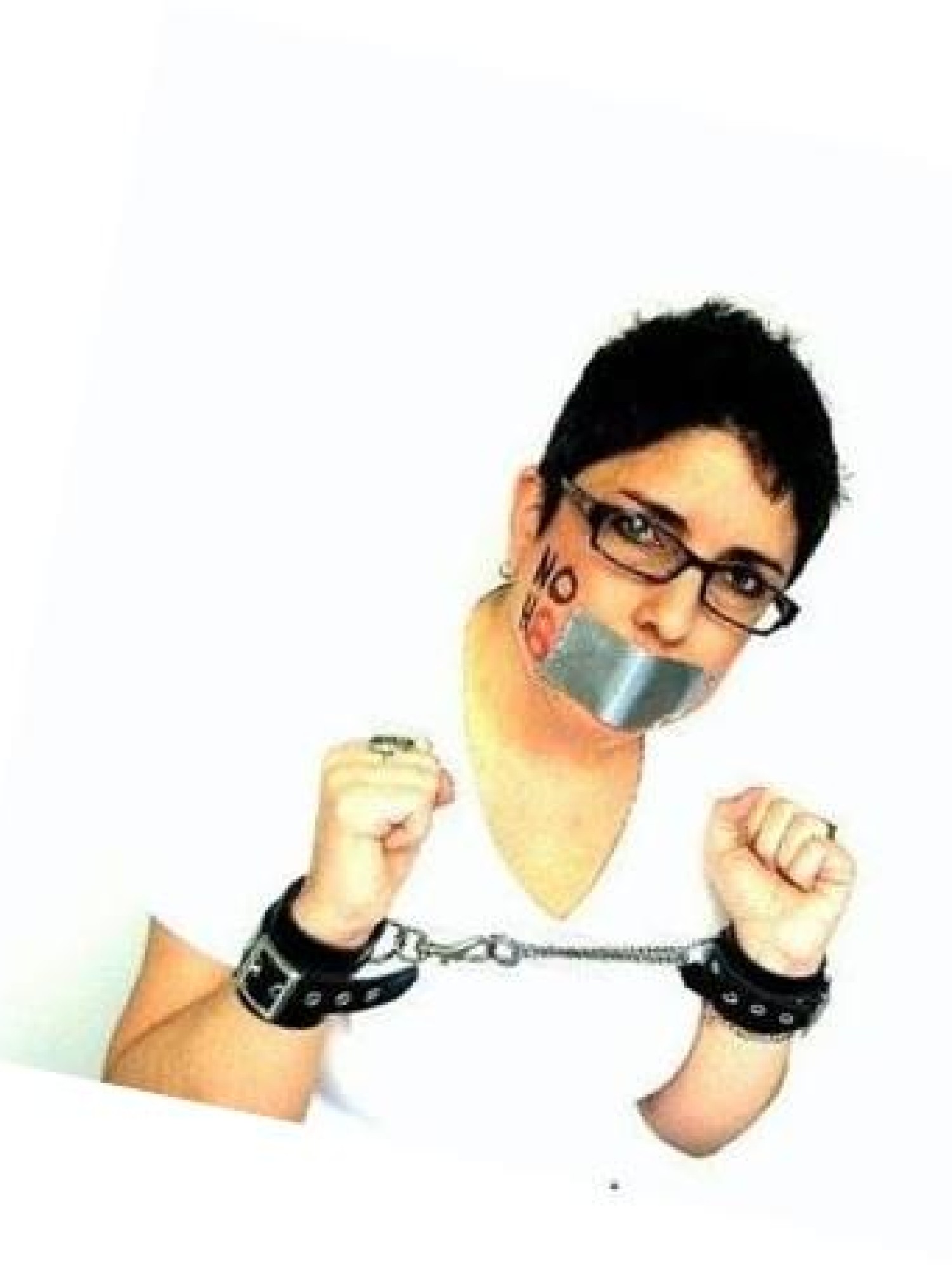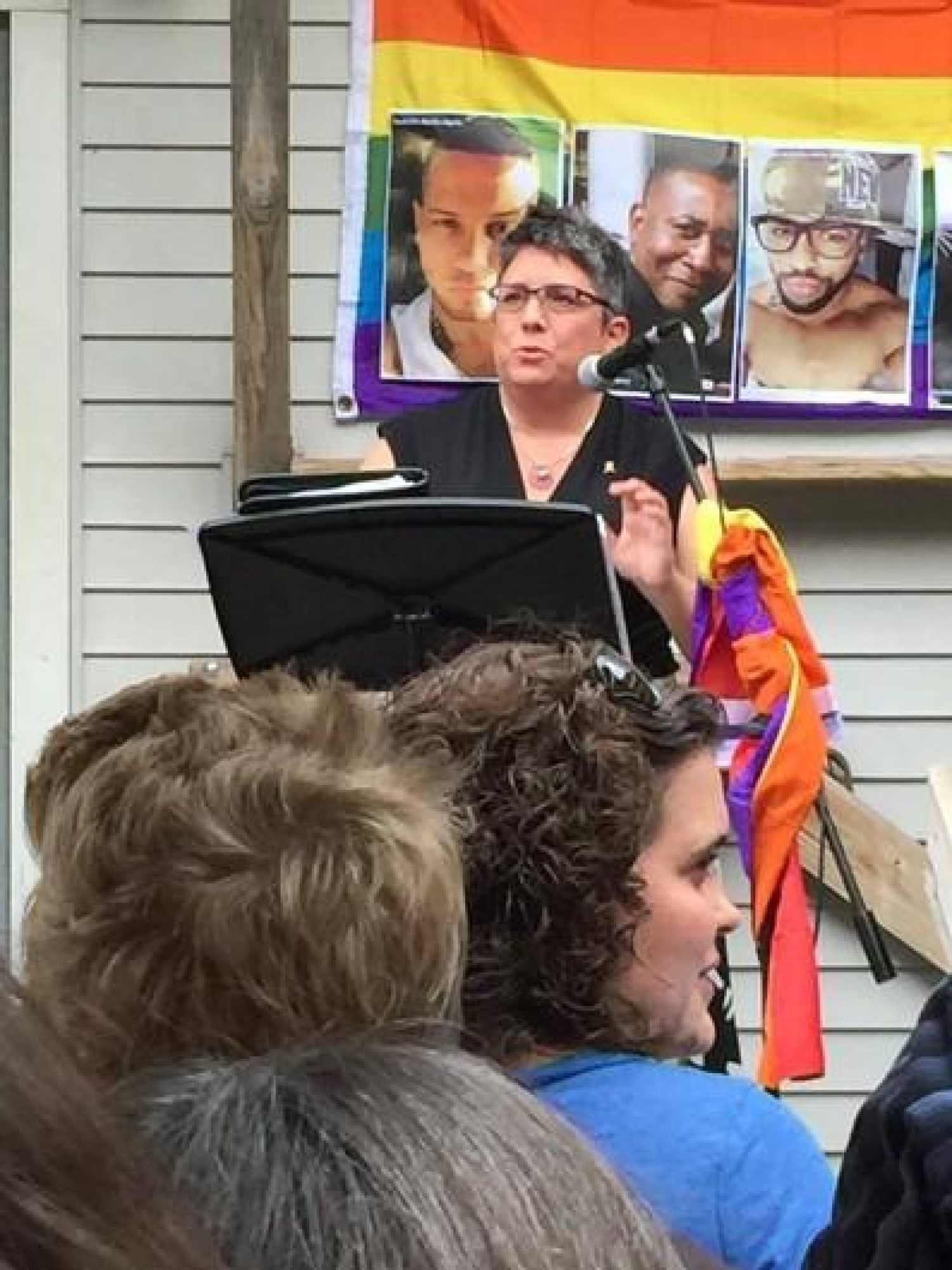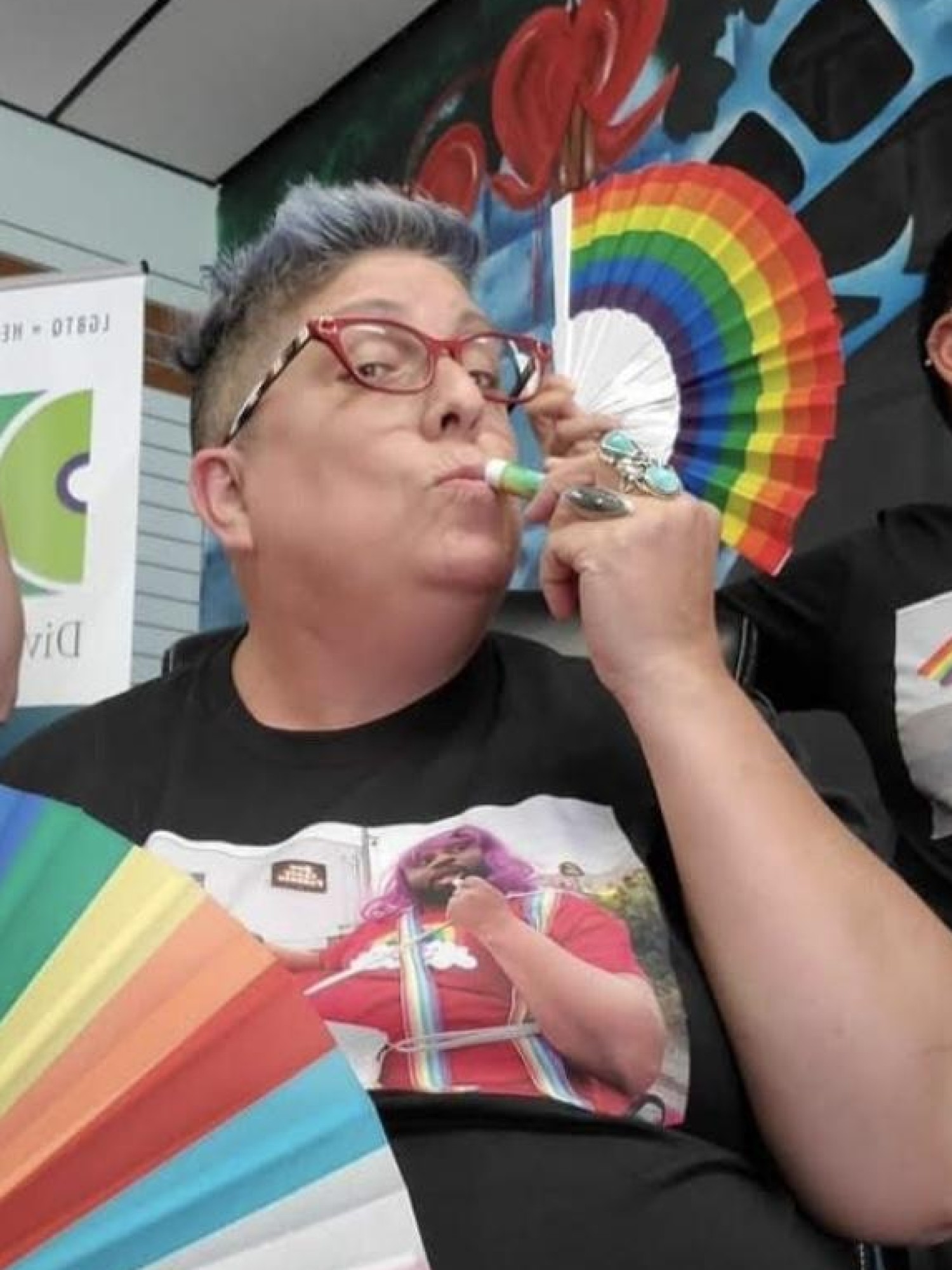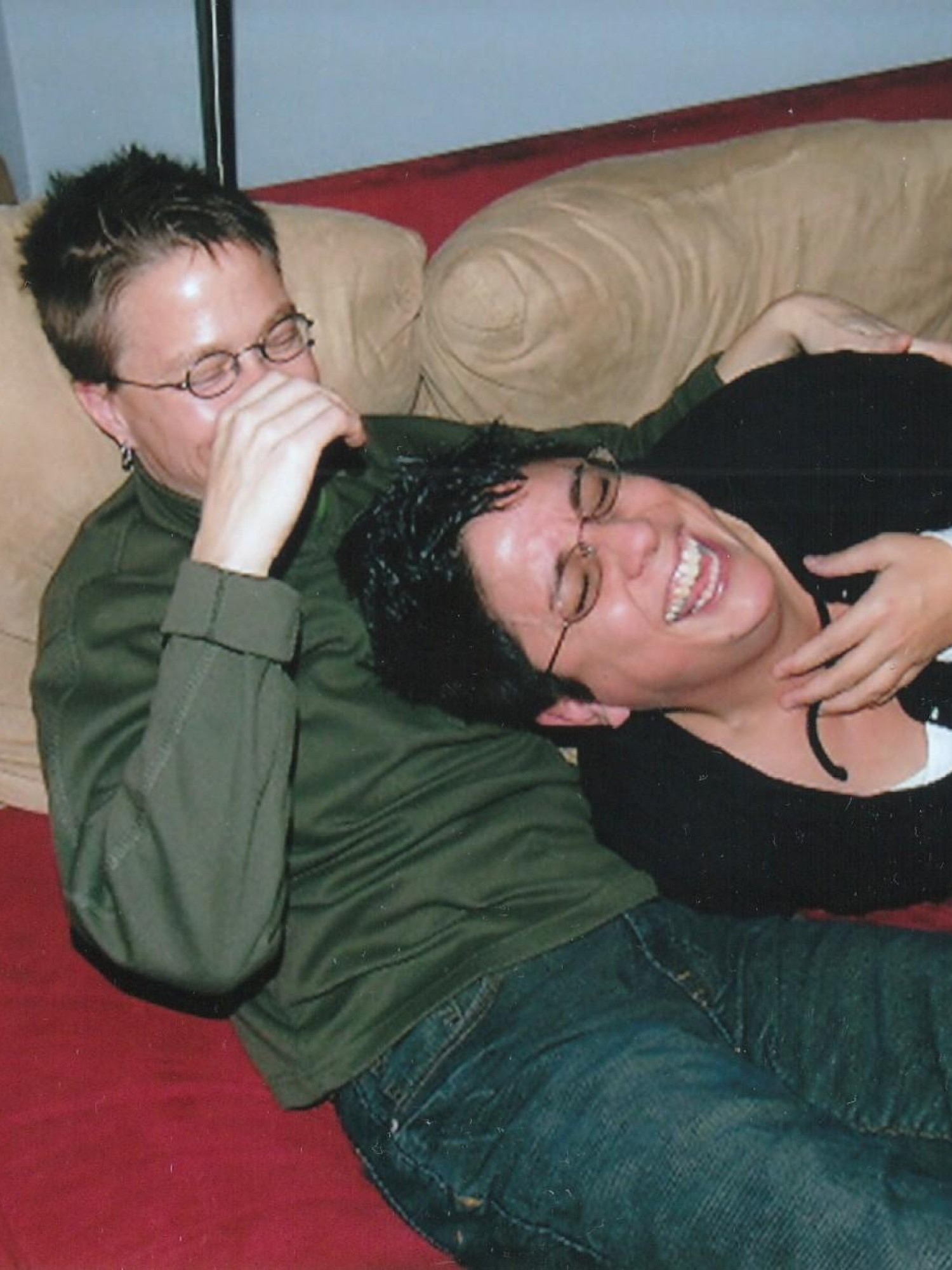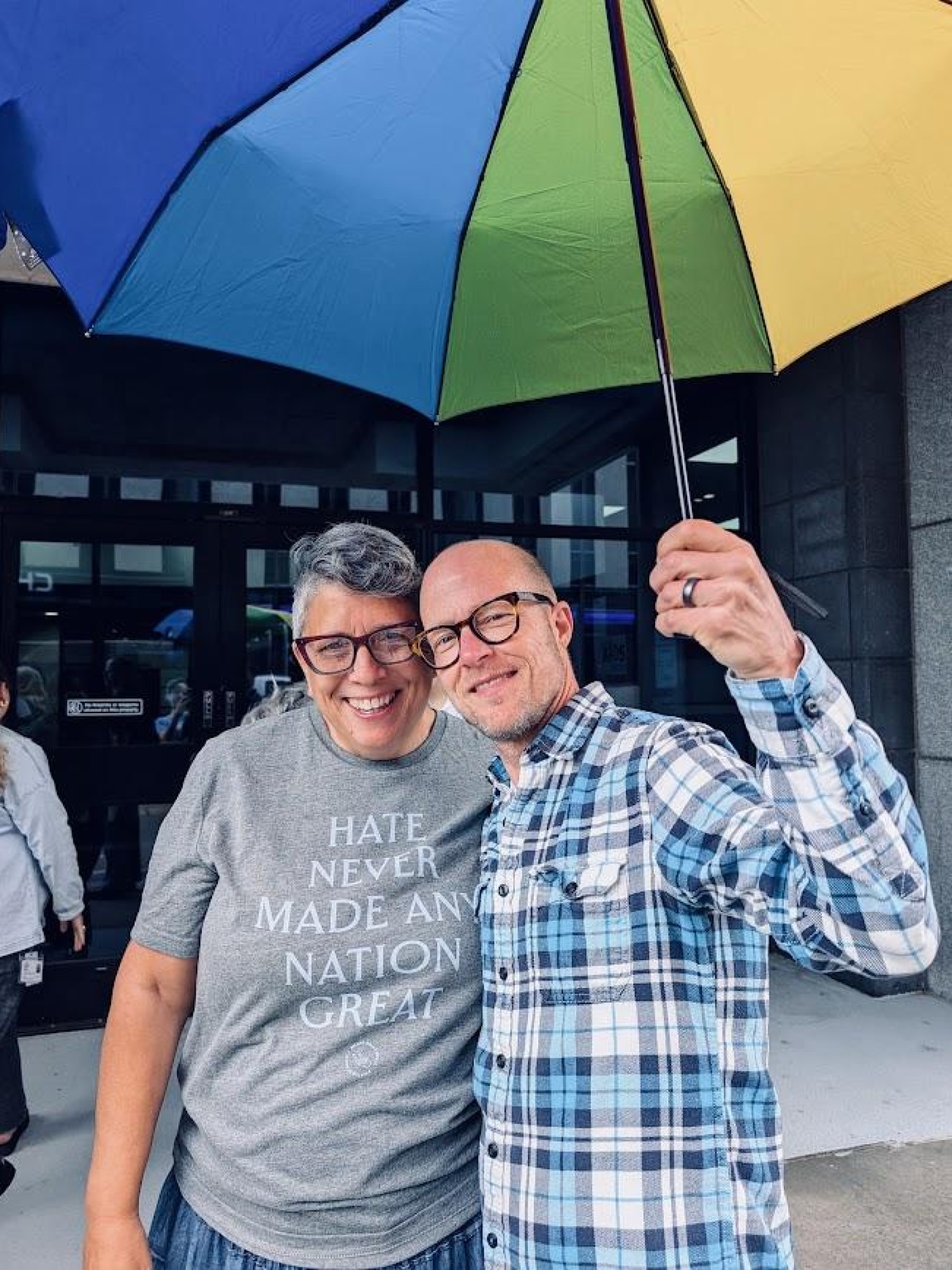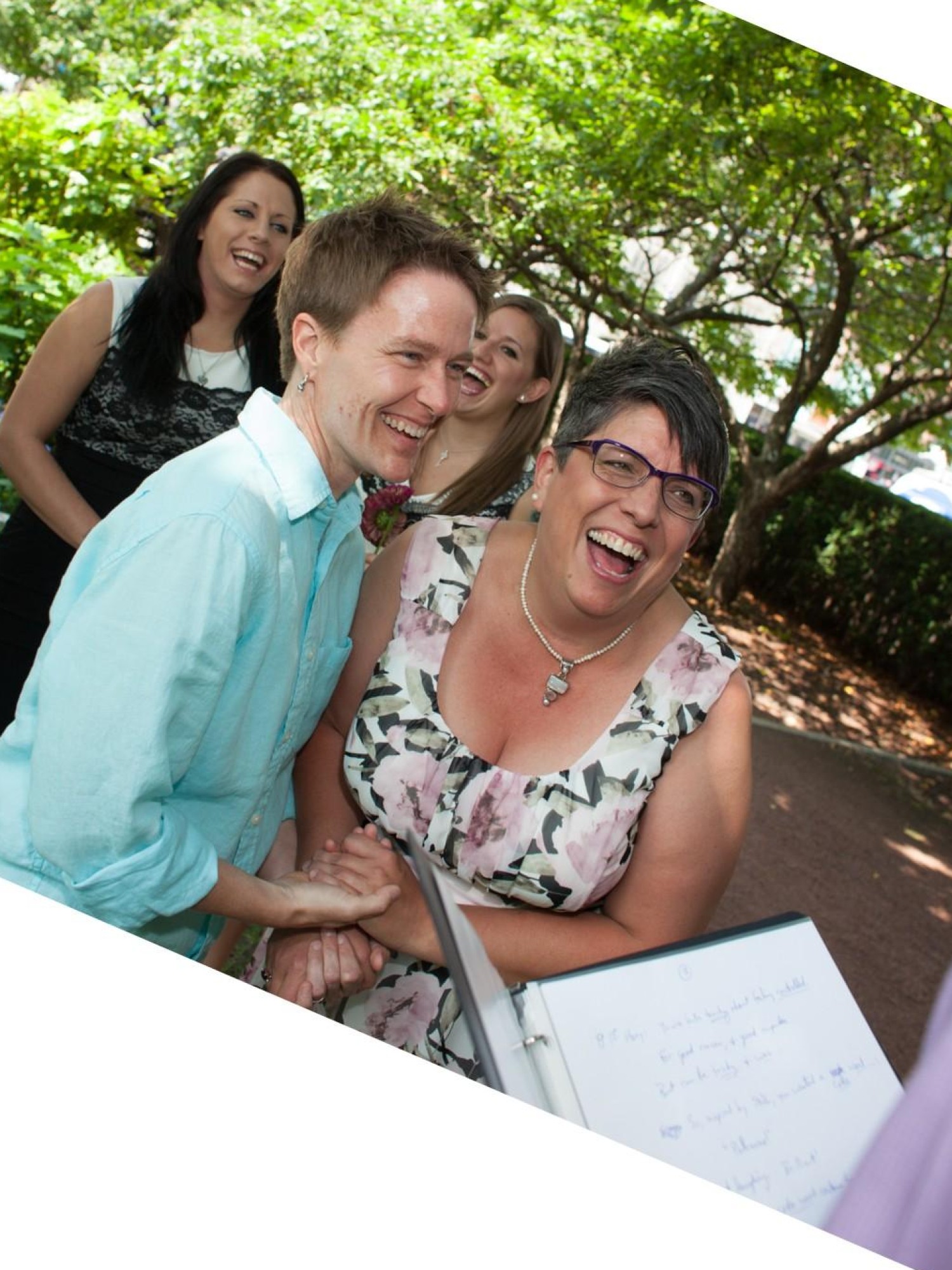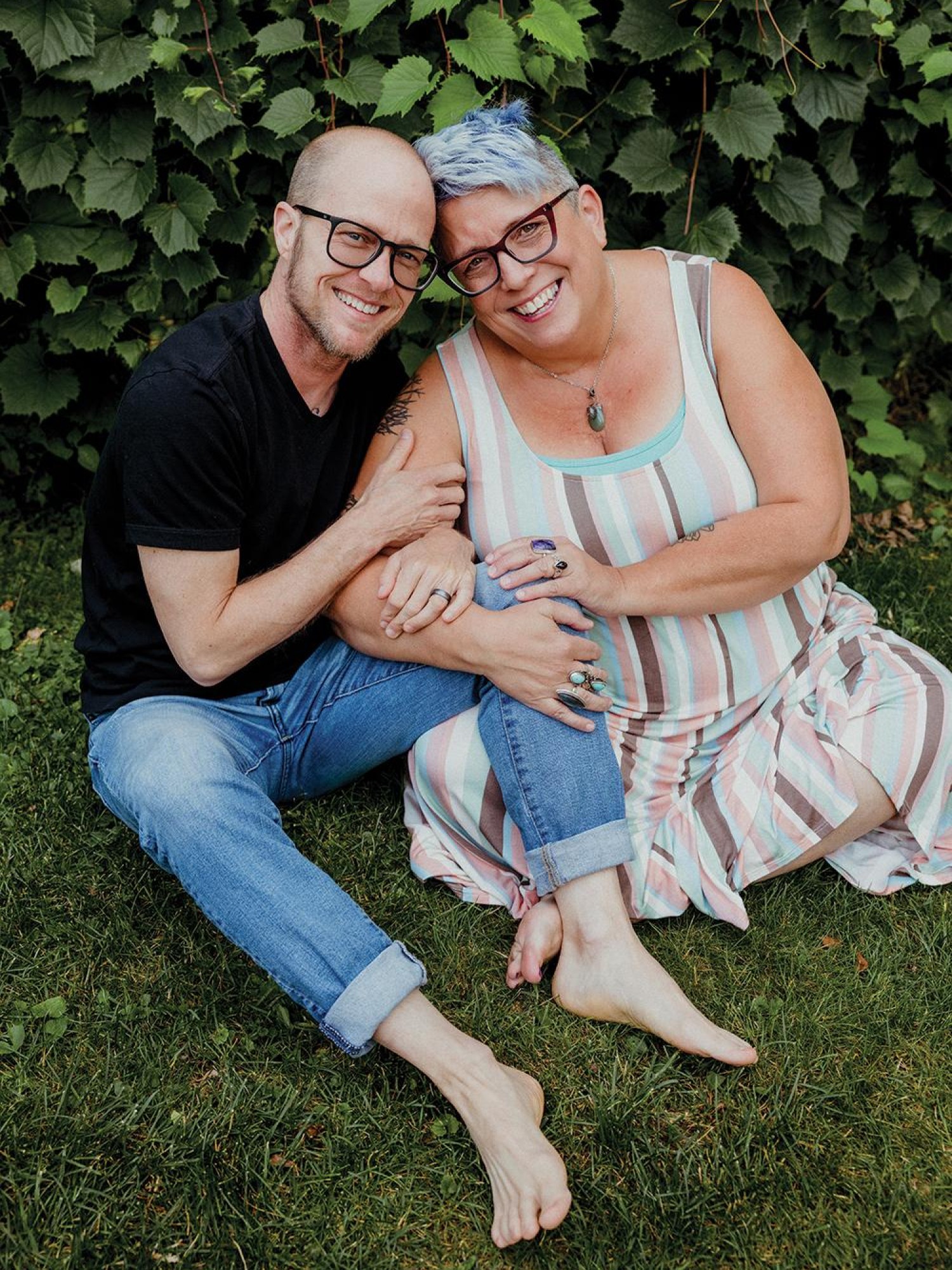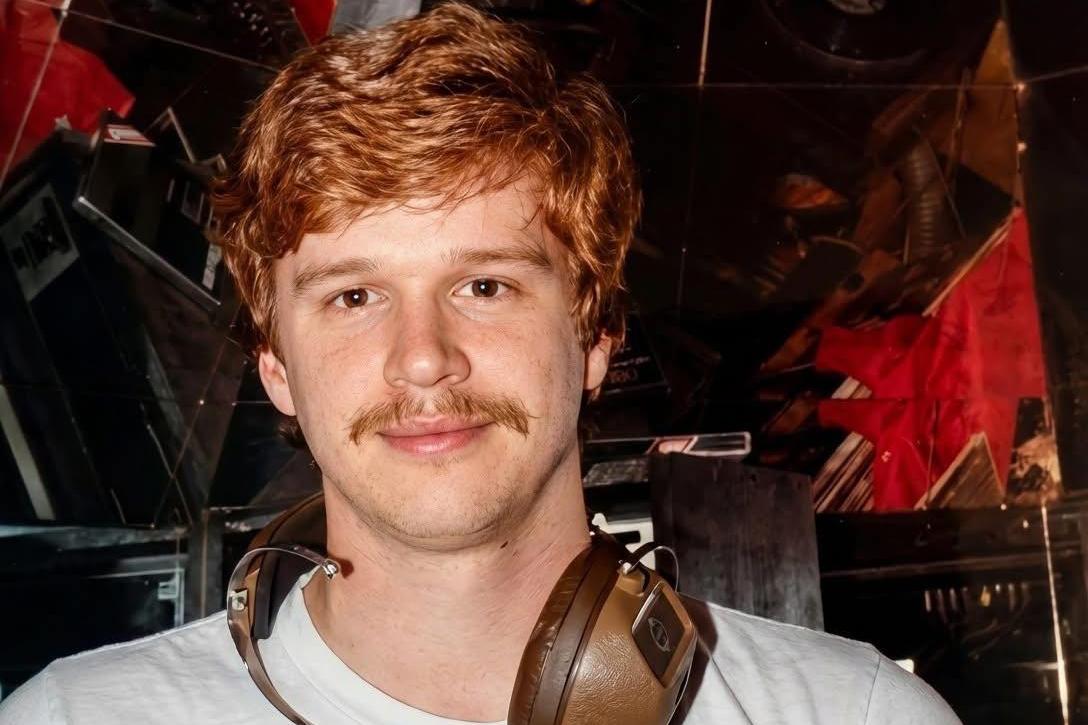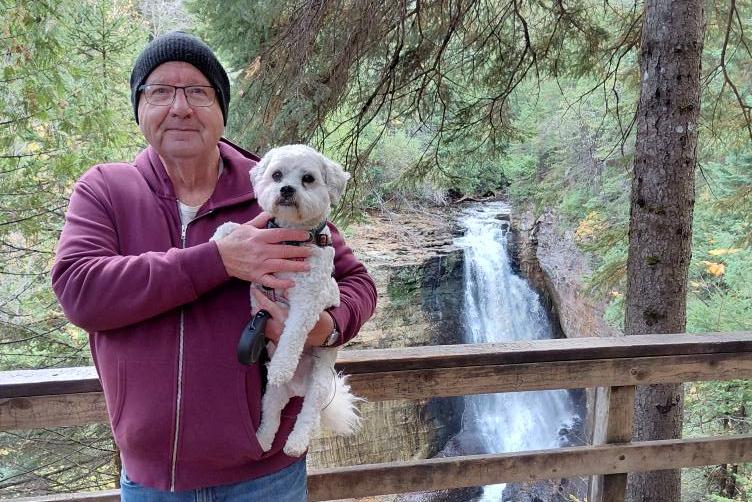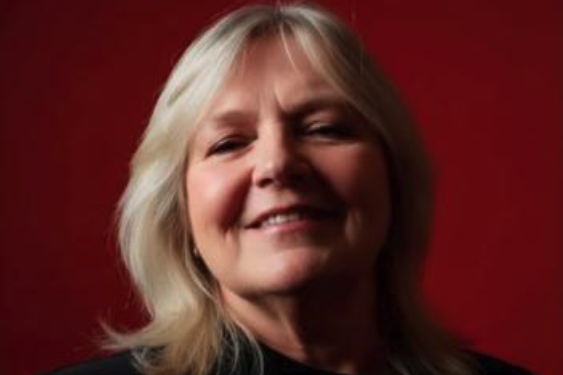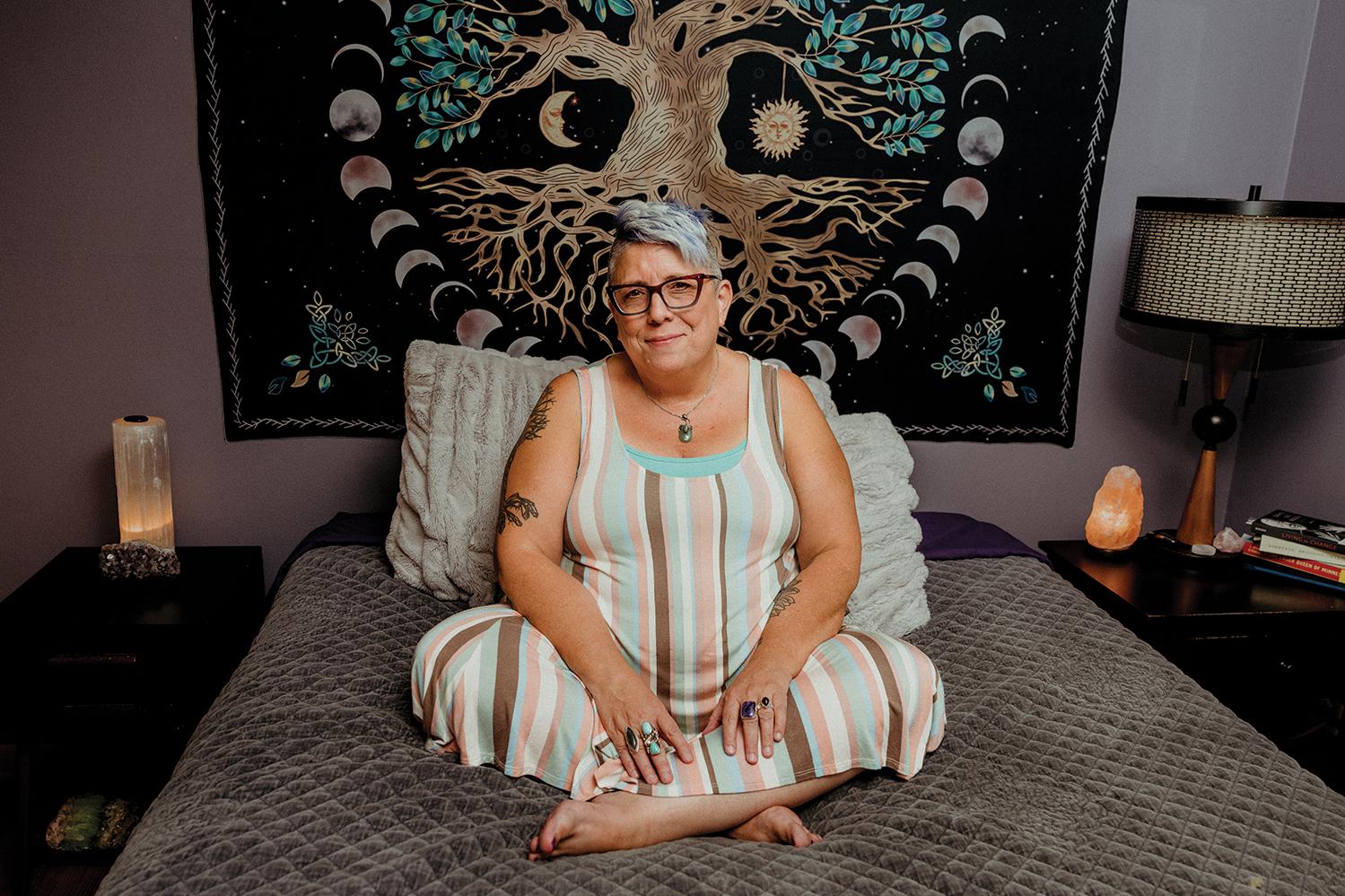
Kathy Flores: from preacher's daughter to passionate changemaker

"It’s time for those with more privilege to step aside and empower brown, black, trans, and queer leaders."
Born in Montana, Kathy Flores grew up in Texas, California, and Michigan. Her father, an independent fundamental Baptist preacher with a military background, didn’t just lead her church, but also served as principal at her parochial school. Her mother, a Mexican woman, refused to teach her Spanish as she wanted her to ‘pass’ more as white and speak without an accent.
As a result, she grew up in a surprisingly strict – and surprisingly conservative – family environment.
“Our church thought all the other Baptists were too liberal,” said Kathy. “That included the Southern Baptists, if you can even believe it.”
The church thought Kathy was very “of the world,” but she describes her childhood as rebellious. She was a typical preacher’s daughter – just clamoring to get out and experience the world beyond.
Kathy learned about racism at a young age. She watched her mother face ridicule, discrimination and stigma, and heard her father make racial slurs and jokes knowing full well he was talking about his wife and child. Growing up in southern California, Kathy saw firsthand how Mexican migrants were treated.
“I had the privilege of white-passing skin and English as my first language,” said Kathy, “but I am Mexican, and I am white. I have been called ‘chingona’ many times from Spanish-speaking friends, which means ‘bad ass woman.’”
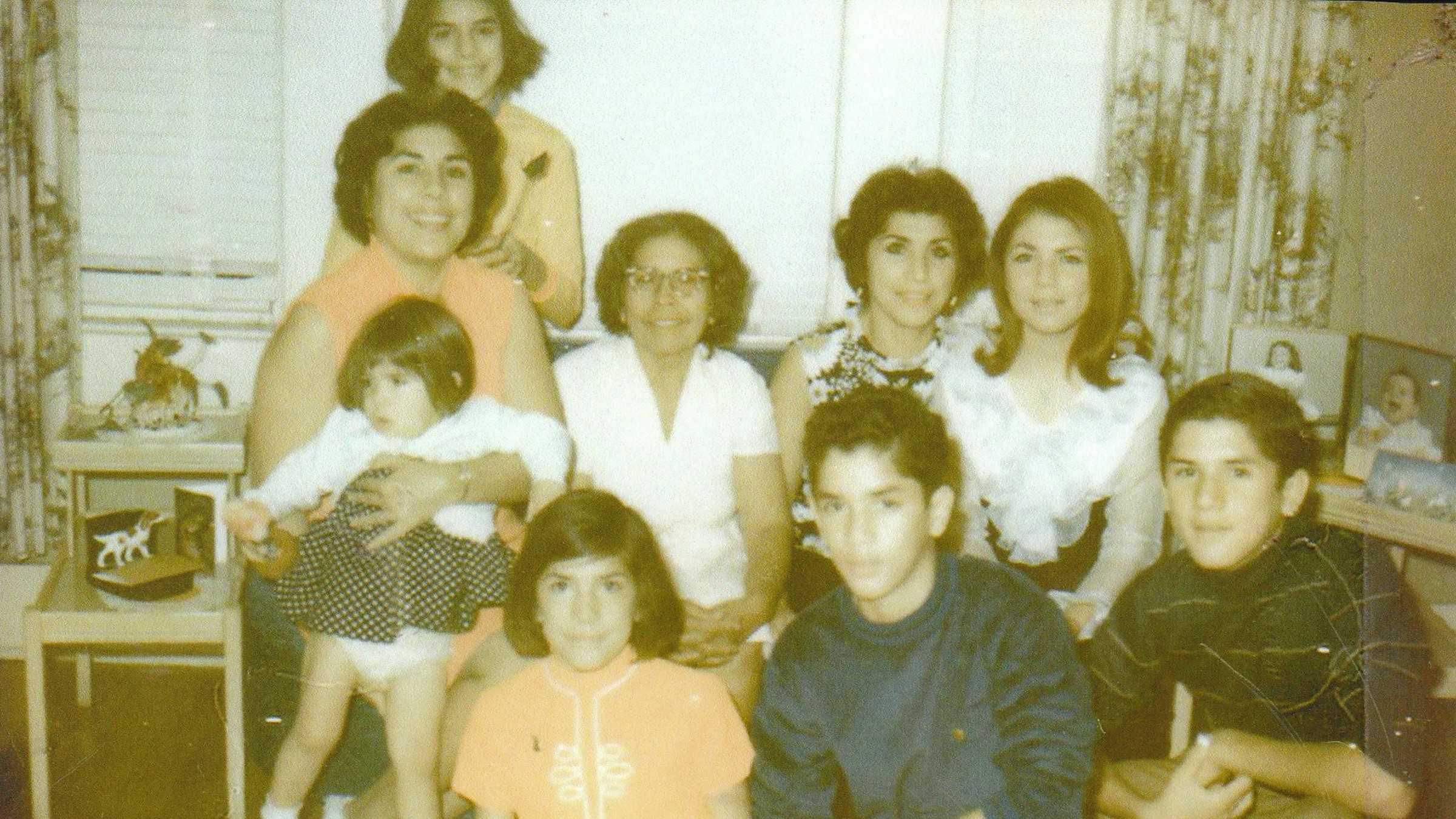 Kathy and her family
Kathy and her family
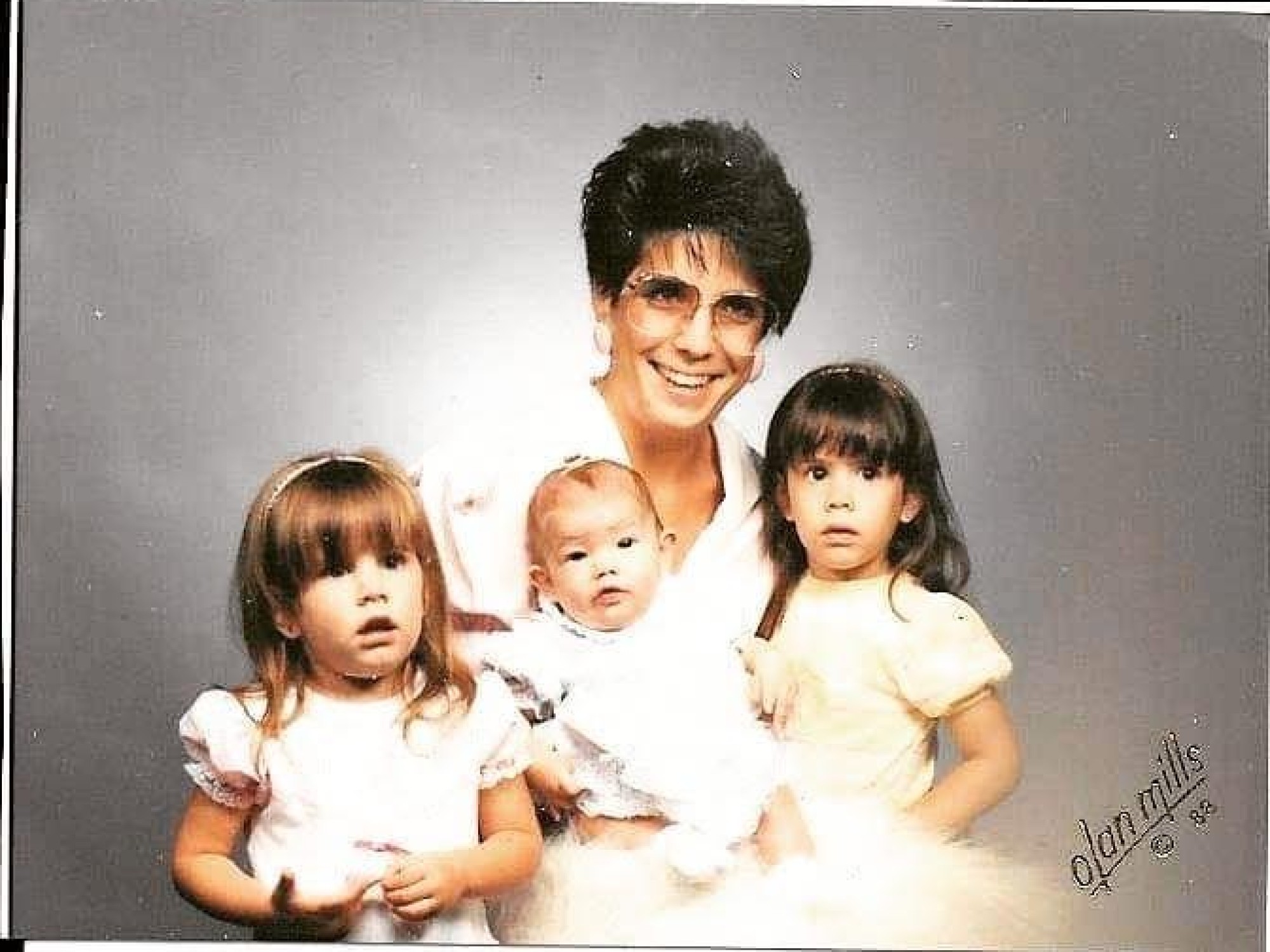 Kathy and her children
Kathy and her children
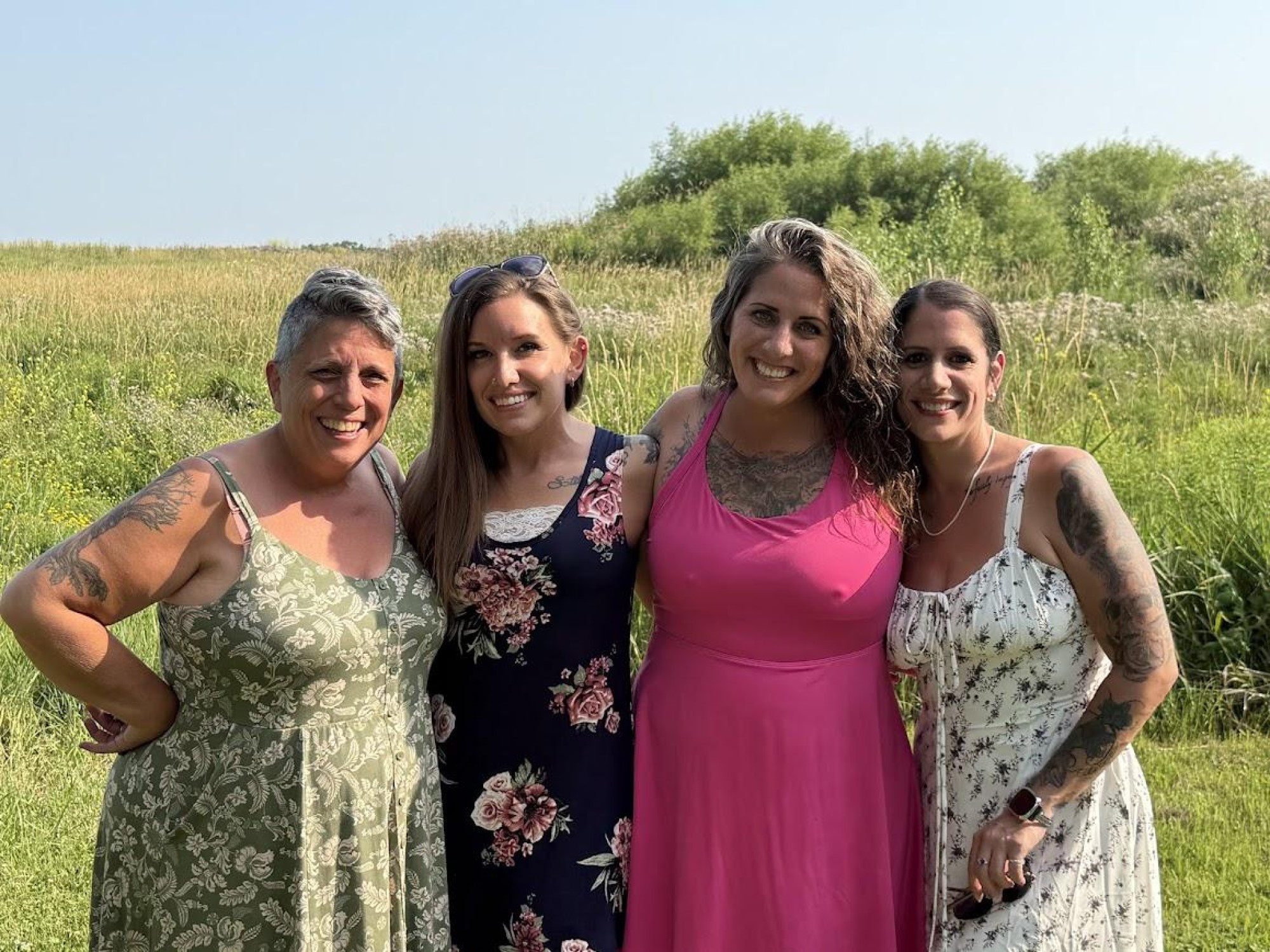 Kathy and her children
Kathy and her children
“Like every other baby gay, I fell in love immediately,” she said. “I even told my boyfriend about it. ‘The way she strums that guitar… it’s like she’s strumming a woman,’ I said. He raised his eyebrows real high, asking ‘how would you know what that looks like?’”
“She just thrilled me so much. I even dreamed about her hands that night. Just her, strumming that guitar. And I wondered, am I gay? I already knew I was. I’d already started watching the Spice Channel. I was already exploring – and trying to find out who I was.”
When her third husband proposed, she finally said the words out loud.
“I don’t know that I should get married. I think I’m a lesbian.”
Her husband-to-be asked her if she’d ever had relations with a woman. Since she had not, he told her that she couldn’t possibly be a lesbian. And so, she married a third time.
“That’s how naïve I was at that time,” she said. “I was living my life as a straight ally. I was supporting diversity and inclusion efforts at my workplace (Kimberly Clark Corporation.) I was always at gay pride events. I could lead a gay pride parade if I needed to. I was the PFLAG mom, even though my children were too young to express their identities. And yet, I was still struggling myself: silently, painfully, internally.”
Kathy and her husband went to a therapist, who speculated that she wasn’t really a lesbian, just aroused by “taboo” activities.
“They actually recommended that we watch lesbian pornography together,” said Kathy. “This is almost comical to say out loud! After trying that once, my husband said, ‘I think she wants me to put on a wig and call me Rachel!’”
Kathy exited the marriage soon afterwards. She credits KD Lang for helping her find herself.
“She sang about constant cravings, desires, secrets… she spoke to me,” said Kathy. “I was already a mom with three little ones. Even after my divorce, I was still a mother first. I may have been single, but I didn’t have the freedoms of a single woman.”
“I finally went to a gay bar in the 1990s, and I was terrified that someone would hit on me. And that’s funny, because when I left, I was hurt that no one hit on me!”
"We had a few stories of a woman acting aggressive towards the men: hitting on them, taking them under their wings, trying to ‘initiate’ them. So, we had to create new programs, to teach women how to respect men in survivor spaces, while protecting the privacy and integrity of the men.”
Kathy is proud of Wisconsin’s progress in expanding domestic abuse shelter access to the trans community. (She notes, however, that homeless shelters are not always safe for trans people.)
In 2009, she joined the City of Appleton as a diversity and inclusion coordinator. She’s especially proud of her work for the city, especially challenging outdated fair housing and dress code laws.
For someone hired to “challenge the status quo,” Kathy soon found herself challenged by a City Council who felt her agenda was “too gay.”
“They tried to remove me from my position three times!” she laughed. “I too loud and outspoken.”
In 2013, Appleton became the third city in Wisconsin to guarantee anti-discrimination protections for trans residents in housing, employment and public accommodation. This is the work that feels like her legacy because it is her proudest accomplishment while in office.
“Milwaukee and Madison were the only cities with trans-inclusive ordinances, so having a city in northeastern Wisconsin as the third was huge. But over a decade later, we still live in a state where you can be fired just for being transgender, evicted for being transgender, denied the human right to a bathroom for being transgender… we should have seen the whole state adopt these provisions by now. Here we are, still fighting about whether trans people are people, and whether they deserve the same rights.”
Kathy left her city position in 2016 to work for Diverse & Resilient, where she later founded an Appleton extension office and A Room to Be Safe, a groundbreaking anti-violence center for LGBTQ residents. She counts her seven years with Diverse & Resilient as some of the finest work of her career.
Kathy has survived multiple health issues including a brain aneurysm, cancer, multiple sclerosis and other diagnoses that have complicated her disability. These combined factors sadly ended her career at the age of 56.
After retiring from Diverse & Resilient, Kathy remains deeply connected and heavily invested in the community. In 2024, she was recognized as a USA Today Woman of the Year for her impact on LGBTQ quality of life in northeastern Wisconsin.
Kathy admits it’s hard not to feel like the world has regressed. With marriage equality, workplace rights, and trans-inclusive healthcare at high risk, it can often feel like the world is on fire.
After working so hard for immigrant rights, she’s especially concerned about the targeting of queer and trans immigrants.
“The government is coming down hard on immigrants, many of whom fled their countries to escape homophobic or transphobic persecution,” said Kathy.
“If they get sent back, it’s a death sentence, and nobody even considers that. This concerns me greatly.”
“Martin Luther King Jr. always said, ‘the arc of the universe is long, but it bends towards justice,’ but I’m starting to worry that we’re not bending towards justice anymore.”
Still, Kathy has hope for the next generation, adding, “it’s time for those with more privilege to step aside and empower Brown, Black, trans, and queer leaders to be fully supported in rising to this moment. They don’t always need us on the microphone talking about their needs. They need us to pass the mic to them.”
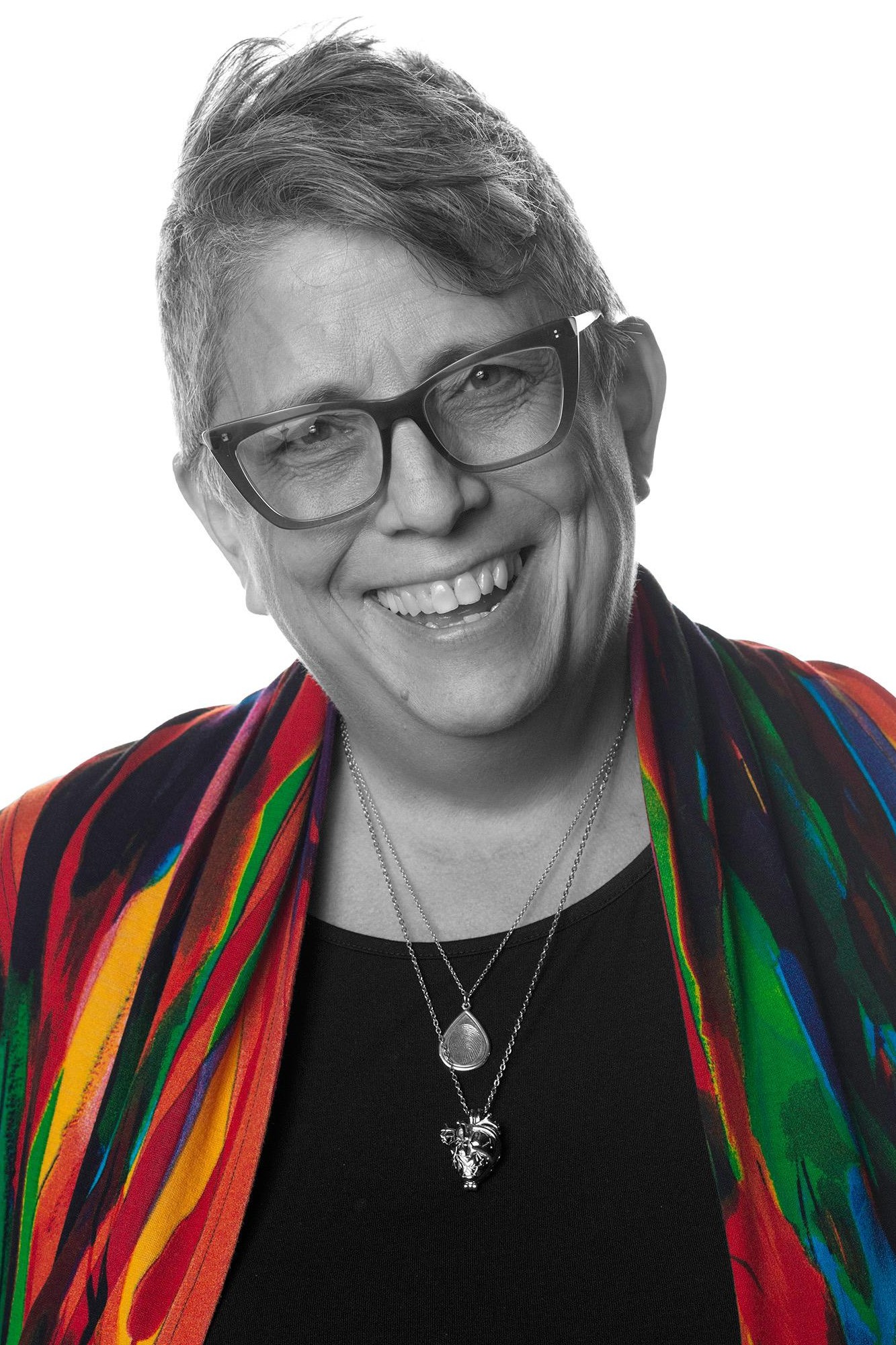
recent blog posts
February 14, 2026 | Michail Takach
January 17, 2026 | Garth Zimmermann
January 16, 2026 | Michail Takach
The concept for this web site was envisioned by Don Schwamb in 2003, and over the next 15 years, he was the sole researcher, programmer and primary contributor, bearing all costs for hosting the web site personally.
